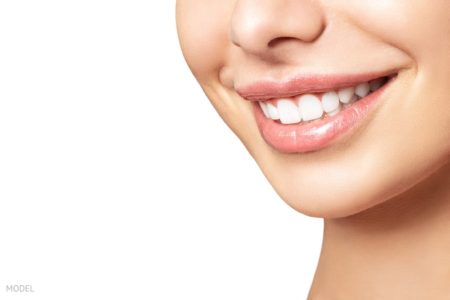Why We Grind Our Teeth at Night
3 Minute Read:
Do you often wake up with headaches or a sore jaw when you get out of bed in the morning?
Everyone grinds their teeth at night—or during the day—regardless of their age. The question is, “how much?”

This is a condition medically known as bruxism. If left unchecked, it can cause some serious damage to the teeth and jaw, leading to sensitive and chipped teeth, chronic jaw pain, difficulty chewing, and other complications.
A key challenge to bruxism is that most individuals aren’t aware that they are grinding their teeth while sleeping.
Why Do People Grind Their Teeth?
Multiple factors contribute to the risk of sleep bruxism, so the cause is unique to each patient.
Stress
One of the most significant factors is stress and anxiety. People may grind their teeth as a reactionary coping method when faced with negative situations.
This has been especially true in recent months as men and women have had more external stress due to the events of COVID-19. From isolation to reduced work hours to a near constant worry about the health of oneself and one’s family, stress levels have increased in most, and this stress carries over. Unfortunately, this has created an increase in both nighttime and daytime bruxism.
Sleep Apnea
Sleep apnea and snoring can contribute to bruxism. Both of these situations affect breathing during sleep cycles, and grinding is used to rouse you from sleep.
Lifestyle
Alcohol consumption and tobacco use can increase your risk of bruxism.
Teeth Misalignment
People with misaligned teeth or uneven bites are more likely to grind their teeth during sleep.
Medications and Disorders
Certain medications, like antidepressants or medications for disorders like Parkison’s disease, can lead to bruxism.
What Are Some of the Symptoms of Night Teeth Grinding?
Common symptoms of bruxism include waking up with a tight/sore jaw, dull headaches, earache, facial pain, increased teeth sensitivity, and chipped/broken teeth.
Teeth Grinding Prevention and Treatment
There is no single treatment that eliminates teeth grinding at night. However, several approaches can minimize the episodes and limit the extent of damage caused to the teeth and jaw.
Wear a Mouthguard
A mouthguard—or night guard—can be used as a barrier against the harmful impact of teeth grinding. Your dentist can create a custom night guard that perfectly fits over your teeth, most likely on your upper teeth, to prevent grinding damage and consequent jaw muscle pain.
Stay Relaxed/Stress Reduction
Taking steps to reduce and manage stress can significantly help to reduce teeth grinding. Patients are encouraged to work with professionals to identify triggers and address them through stress management and relaxation exercises.
Cut Back on Tobacco or Alcohol
If you drink alcohol or smoke, try cutting back on both especially right before bed.
Usually, regular dental checkups are needed to detect damage in the early stages. Dr. Fiss will evaluate your situation and determine the most suitable option for your problem.
Interested in Learning More?
If you are experiencing any of the symptoms of teeth grinding, don’t hesitate to contact us today by calling (312) 642-6631 to schedule an appointment. Our experienced team of dental professionals is committed to providing excellent care to restore a beautiful, healthy smile.